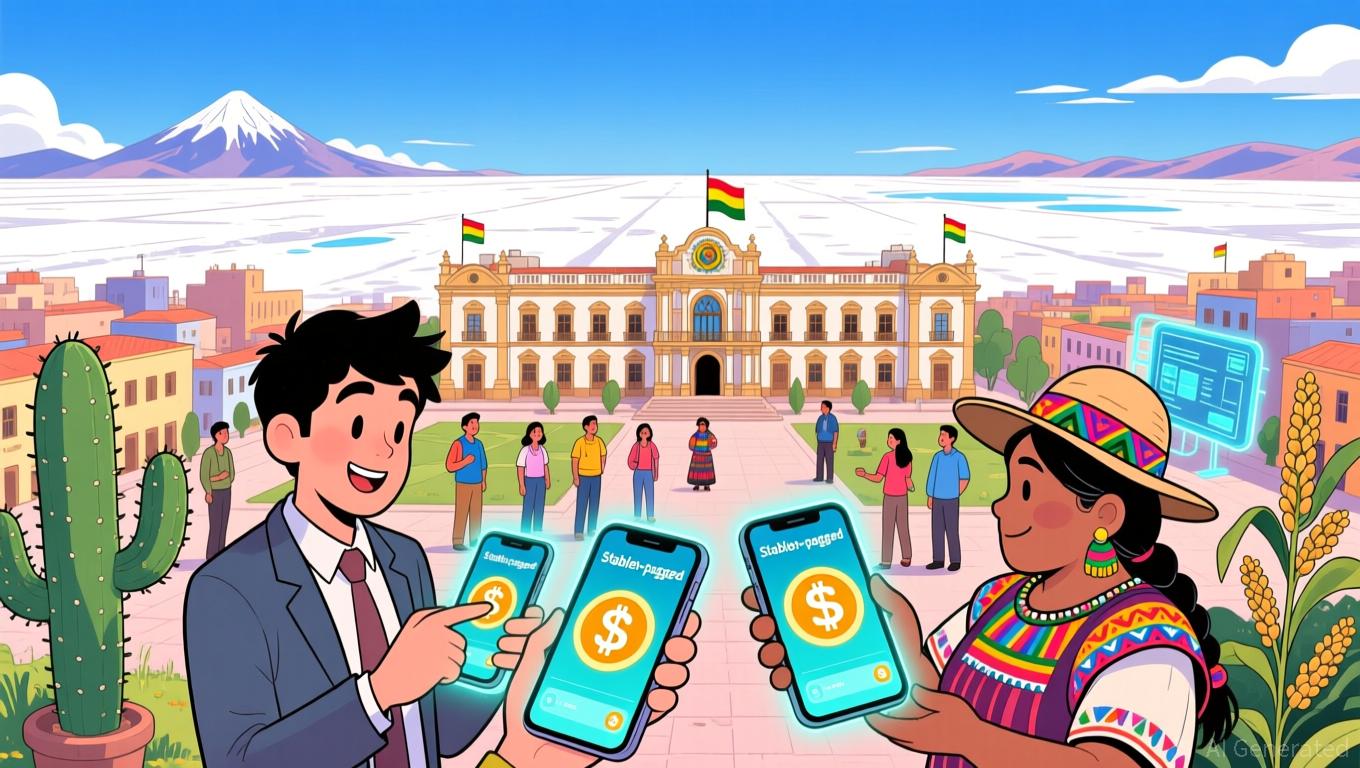Bolivia Turns to Stablecoins to Address Inflation and Currency Instability
- Bolivia legalizes stablecoin integration into banking , allowing crypto-based accounts and loans to combat inflation and currency devaluation. - Crypto transaction volumes surged 530% in 2025, driven by $15B in stablecoin use as businesses adopt USDT for cross-border payments. - Policy mirrors regional trends, with stablecoins recognized as legal tender to stabilize the boliviano amid 22% annual inflation and dollar shortages. - Challenges include AML safeguards, tax frameworks, and public trust, as regu
Bolivia is shifting its financial strategy by embracing cryptocurrencies and stablecoins, ending a ten-year prohibition on digital assets. This significant policy change, revealed by Economy Minister Jose Gabriel Espinoza on November 25, 2025,
This decision comes after a notable increase in crypto usage following the June 2024 annulment of Resolution 144/2020, which had previously banned digital assets.
This reversal in policy is driven by mounting economic challenges.

Nonetheless, the transition is not without obstacles.
Disclaimer: The content of this article solely reflects the author's opinion and does not represent the platform in any capacity. This article is not intended to serve as a reference for making investment decisions.
You may also like
Mutuum’s Presale Momentum and Testnet Expansion Highlight DeFi’s Advancing Capabilities
- Mutuum Finance's Phase 6 presale exceeds 90% allocation, nearing $19M raised with 18,500+ holders and 250% token price growth. - Project advances with Halborn Security audit, Sepolia testnet planned for Q4 2025, and card payment support expanding accessibility. - Analysts highlight multi-fold return potential as Phase 7's $0.04 price tier approaches, with buyback mechanisms reinforcing value retention. - Strong presale momentum and robust security measures position MUTM as a functional DeFi ecosystem bey
Market news: Japan finalizes 18.3 trillion yen supplementary budget to fund stimulus package.